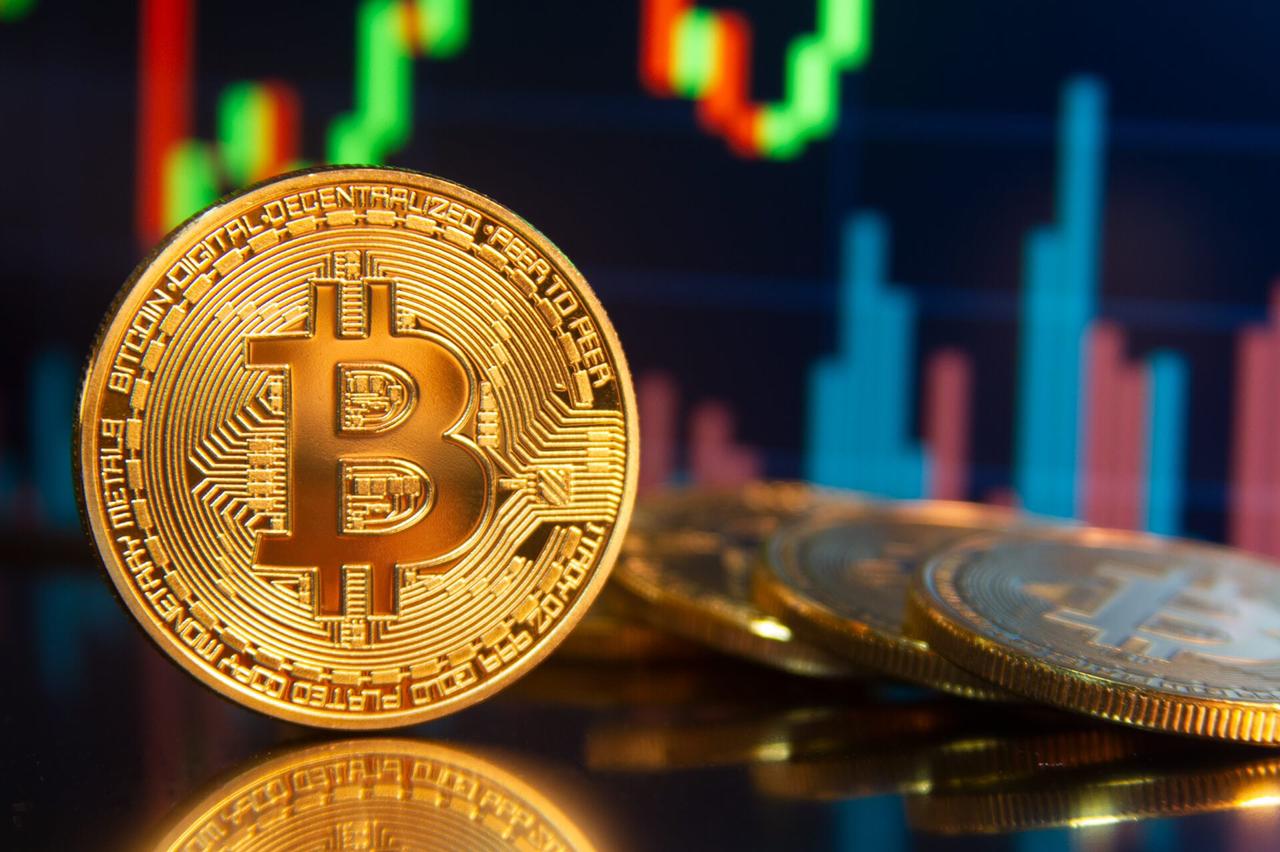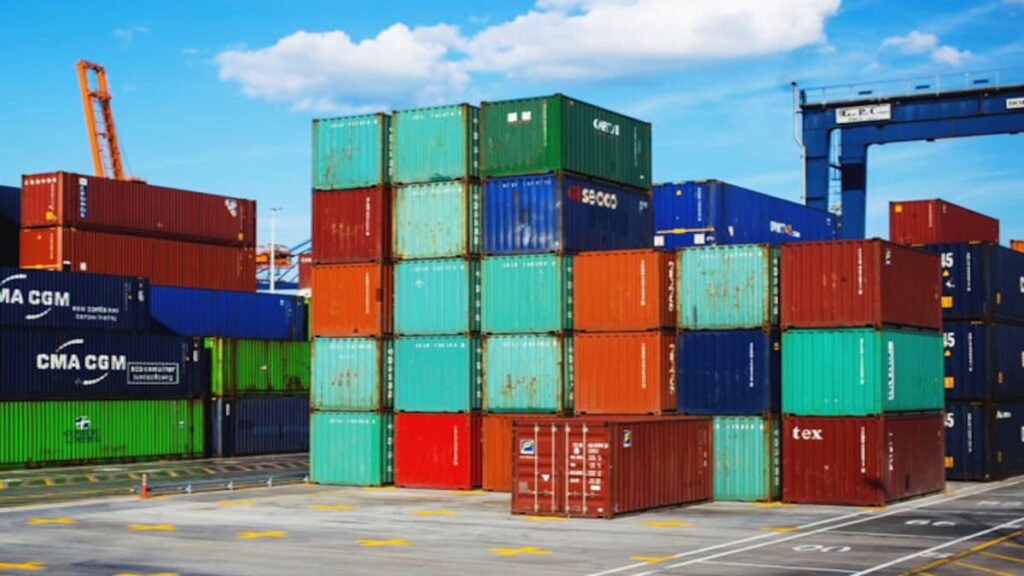World
3 Reasons International Trade is still resisting Blockchain, According to HadariOshri

Deep rooted culture creates barriers when it comes to modernizing the oldest industry in the world.
But just because technology is available, does not mean that it will be fully adopted. Take international trade for example. It would seem that blockchain would solve many of the legacy and manual processes in selling and shipping containers. To help us better explain why there is still resistance to this technology within international trade, we reached out to serial entrepreneur HadariOshri. With a background in buying and selling containers of fast fashion excess inventory, Hadari has pivoted to helping hospitals and other organizations source much-needed medical supplies and PPE from suppliers around the world.
Virtually sitting down with Hadari, I asked her some questions to better understand why there is still such resistance to adoption of blockchain technology. Hadari shares three factors that she says explains why.
- Cultural resistance
Hadari shared that part of the resistance to blockchain when it comes to import and exports is rooted in the culture of the shipping industry. “Sometimes the deals are closed just because the partners have been doing business together for many years,” she explained. “Many older players just don’t seem to be open to change.” She tries to talk with them about the benefits of blockchain, and how it can help support transactions by building trust. But most are not ready to listen, or simply stop the conversation saying that it’s just not going to happen.
The idea of digitization for some is a direct threat to the way that they have always done business. Some fear that it takes the personal elements out of the transactions. Hadari tries to explain how blockchain could help to build more trusted relationships through transparency.
“Digitalization is already happening in the industry, but mixed with older more traditional methods, the issue becomes how to ensure that the digitized data is not only highly secure, but also accessible throughout the whole process, allowing for existing relationships to strengthen not separate.”
- Imports and Exports is data driven, with manually inputted data

If you boil it down, there are two parts to global trade. There are the things that move and the tracking data about those things. Tracking these moving parts for containers that are shipped globally are traditionally maintained in ledgers. The primary method of maintaining these ledgers has been a manual process done by humans, documenting on paper, and more recently on computers.
“Blockchain is a digital decentralized ledger, where multiple transactions are put into a block and stored across multiple devices,” Hadari explains. “Hence the name blockchain. They are good at maintaining informational states and if used could help the shipping industry create ledgers that are more transparent and trustworthy. Over time, if ledger data is entered into the blockchain, it lessens the chance for human error, making it nearly impossible to create false information.”
“The biggest problem is that the current antiquated system of manually filling out multiple data points along the supply chain is that it creates a significant risk of human error,” said Hadari. “It does not have to be malicious, it could just be a mistake. But one mistake could cause a lot of problems that ripple through the supply chain. Imagine if a human error resulted in shipments being put on the wrong ships or containers with perishables that sit on a dock so long that they go rotten.” This is one of the core reasons that she believes that the adoption of blockchain will improve on existing processes in a number of ways. But even if she got the buyers and sellers to buy into the idea, there are still the banks to convince.
- Resistance from banks
Hadari told me that above all else, “This is a cash-in-hand industry.” She shared a story about a friend who is an independent broker who is bullish on using cryptocurrency, and he suggested using crypto in some of her trade transactions. She laughed and explained that the guys she deals with are very adverse to anything other than cash. She sees the lack of understanding in sellers, buyers, and brokers being a major hurdle to broad adoption of cryptocurrencies becoming mainstream as a means to pay for trade deals.
To try to get banks on board, Hadari looks for opportunities to point out how the blockchain can help improve speed of transactions. She talked about the fact that with larger deals, you are oftentimes transferring money between banks that take multiple days, which leaves the buyers
and sellers monies tied up and vulnerable to unfavourable changes in exchange rates. With the blockchain and verified transactions, money can be moved much quicker.
She explained that there are also a lot of issues around interbank trust. You can trust your buyer, but the sellers bank might have issues in completing the funds transfer. The use of blockchain enables a transparent repository of funds in escrow which can also help build trust.
In conclusion
Using blockchain technology in the imports and exports global industry leads to a higher level of confidence for all. But that is not enough to convince the industry to change. One of the challenges for anything driven by technology is to make that technology easy to understand and use. If it is going to work, Hadari says that blockchain will need to interface with how people are used to do business in a seamless way. And right now, that is not a reality, at least until there is a major cultural shift, an understanding how the technology can build trust, and banks that are willing to deal in cryptocurrency.
World
More Named Storms — Is Your Luxury Pergola Ready?

The National Oceanic and Atmospheric Administration (NOAA) predicted a 60% chance that the 2025 Atlantic hurricane season would be above normal. The administration said to watch for between 13 and 19 total named storms — those with winds of 39 mph or higher.
For homeowners in hurricane-prone regions, this raises an urgent question: are your outdoor spaces ready to weather the storm?
PERGOLUX, a leader in durable outdoor structures, designs powder-coated aluminum pergolas with adjustable louvers to withstand the harshest environments.
“Today’s outdoor living spaces face the wrath of nature’s extremes,” says Tim Heneveld, Country Director of PERGOLUX North America. “Hurricanes, tropical storms, and flash floods bring powerful winds exceeding 100 mph. Their relentless rain and rising floodwaters can quickly devastate unprepared structures. If you want to protect your investments, resilient design is essential.”
Is your aluminum pergola and louvered roof ready to take on intense storms?
The open-air elegance of patio pergolas with slat roofs is perfect for a gentle breeze, but can make them vulnerable to the violent forces of hurricane winds. These storm winds pack powerful uplift and lateral forces.
Wind uplift occurs when gusts of wind flow beneath the roof, generating upward pressure that can lift the entire structure off its base. Lateral forces push a pergola horizontally, causing it to lean or even collapse.
The key defense against these powerful forces? A reinforced frame.
“Strong, well-engineered frames act as the backbone of your pergola,” notes Heneveld. “Aluminum is the ideal material for a pergola’s frame. It combines the strength needed to resist bending or breaking with a lighter weight that reduces strain on the foundation.”
PERGOLUX’s pergolas feature reinforced frames engineered to withstand intense storms with confidence. In fact, their latest model, the Skydance Series 3 Pergola, is specially crafted to endure winds up to 165 mph, which means that even when fierce hurricanes like Milton sweep through, these pergolas remain intact.
Reinforced aluminum frames designed with thickened beams and precision connections stand up to wind uplift and lateral pressure. Hurricane-rated bolts, brackets, and screws hold everything tightly together to prevent weak points that storms so often exploit. When each joint is reinforced and well-anchored, your pergola can remain a steadfast retreat despite the wildest weather. Thicker beams and columns combined with robust engineering techniques give these pergolas superior strength. Extra support brackets, hidden fasteners, and precise assembly methods ensure the frame endures.
Elevated bases can protect your luxury pergola from floods
Along with high winds, storms bring torrential rain. Rising water can undermine structural footings and rot wooden materials, which can destabilize the entire installation.
An elevated base is a strategic line of defense. “By constructing your pergola on raised concrete footings or piers, you create a gap between the ground and the structure,” notes Heneveld. “During a flood, it keeps the water at bay. The elevation also prevents erosion caused by pooling rainwater.”
The best-quality outdoor pergolas offer high-grade materials and cutting-edge engineering
The key element of any storm-ready outdoor structure is its materials. PERGOLUX chooses 6063-T5 aluminum, a marine-grade alloy renowned for its incredible strength and exceptional resistance to corrosion, even when exposed to salty sea air and humid conditions.
“A wooden or vinyl pergola may look great at first,” says Heneveld, “but they often require costly upkeep or replacement after just a few seasons of storm damage. Our reinforced aluminum pergolas will give you years of worry-free durability. It will remain strong and look fantastic, no matter the weather.”
PERGOLUX’s advanced engineering solutions also protect what is inside the structure. Their patented RainLUX™ integrated gutter system channels rainwater away, preventing leaks that can damage furniture and floors.
“We offer a 10-year warranty to back up all of our claims,” Heneveld says. “It’s our commitment that these structures will protect your home’s exterior environment for years to come. We want you to focus on enjoying the moments that matter in your pergola, not on the coming storms.”
Practical outdoor living tips to prepare your louvered pergola kit before storm season
Even the strongest pergola will fare better when prepped for a coming storm. “Make sure to secure your loose items,” Heneveld warns. “Before a storm, remove furniture, planters, and décor. All of these can become hazardous projectiles.”
When homeowners hear that a storm is on the way, they will want to fully secure any screens or panels. Removing detachable panels before severe weather will help protect the pergola by reducing wind resistance.
Homeowners will want to take the time to routinely inspect and maintain their pergolas. A quick check for loose fasteners or other small signs of wear goes a long way in preserving the pergola’s strength.
“Combine simple preparation with a reinforced, elevated, and expertly engineered structure, and you’ll have an outdoor space built to last,” Heneveld concludes. “Investing in a storm-ready pergola is about so much more than just avoiding damage. You’re preserving a lifestyle. A long-lasting pergola will bring you years of shaded summer barbecues and fresh-air morning coffees.”
-

 Tech5 years ago
Tech5 years agoEffuel Reviews (2021) – Effuel ECO OBD2 Saves Fuel, and Reduce Gas Cost? Effuel Customer Reviews
-

 Tech6 years ago
Tech6 years agoBosch Power Tools India Launches ‘Cordless Matlab Bosch’ Campaign to Demonstrate the Power of Cordless
-

 Lifestyle7 years ago
Lifestyle7 years agoCatholic Cases App brings Church’s Moral Teachings to Androids and iPhones
-

 Lifestyle5 years ago
Lifestyle5 years agoEast Side Hype x Billionaire Boys Club. Hottest New Streetwear Releases in Utah.
-

 Tech7 years ago
Tech7 years agoCloud Buyers & Investors to Profit in the Future
-

 Lifestyle5 years ago
Lifestyle5 years agoThe Midas of Cosmetic Dermatology: Dr. Simon Ourian
-

 Health7 years ago
Health7 years agoCBDistillery Review: Is it a scam?
-

 Entertainment7 years ago
Entertainment7 years agoAvengers Endgame now Available on 123Movies for Download & Streaming for Free
